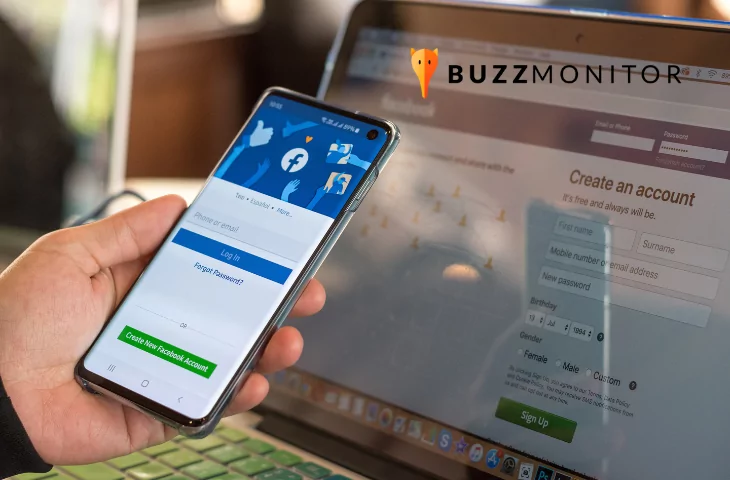If you use Buzzmonitor’s monitoring module to track data from Facebook pages you don’t manage, you may have noticed a change in public comment collection. Since 08/19, Meta’s API has imposed new restrictions, limiting the way comments are collected.
Let’s break down what has changed and how it affects your monitoring:
What Has Changed in Comment Collection?
In recent years, the collection of public comments on Facebook via API has faced several restrictions, prioritizing user privacy on the social network, with the removal of comment IDs being one of the main changes.
This ID, which acts as a unique identifier for each comment, is essential for monitoring tools like Buzzmonitor to identify and store interactions accurately and in an organized manner. Without these identifiers, it’s impossible to differentiate one comment from another, compromising the analysis of interactions on posts.
Previously, we could address the lack of ID limitations by using a unique link for each comment, known as permalink_url. However, since 08/19, Meta has stopped providing this field in its API, making it impossible to collect comments for monitored pages, both in projects and in the news monitoring service known as Social News. Without a unique identifier, no monitoring platform can correctly store this data, making it even harder to identify interactions.
With these changes, data collection has shifted: previously, you accessed both posts and comments from pages you didn’t manage; now you’ll only have access to posts. This new rule is similar to the one already in place on Instagram, where monitoring accounts not controlled by the user allows viewing only posts, not comments.
These changes affect the ability to collect data for analysis, limiting the potential to gather insights on audience interactions on pages not managed by users.
Why Did This Happen?
This change is an update to Meta’s commercial policies and affects all monitoring platforms. With the new restriction on comment collection, there are no longer alternatives to bypass this limitation.
What Still Works?
It’s important to know that this change only affects Facebook pages you don’t manage. If you manage the page, you can still collect comments and data as usual. The following features remain unaffected:
- Comment collection through synced pages (CRM) and webhooks: If you’re the page admin, comment collection continues to work without changes.
- Public post collection: The collection of public posts from both projects and Social News remains unchanged.
- Public analytics: Data collection for public analytics reports continues as normal and is not affected.
In summary, the new rule limits comment collection only on pages not under your control, but it doesn’t affect access to data on pages you manage or the collection of public posts.
What Should You Do with Your Monitoring Strategy?
If you’re monitoring competitors or collecting public data from Facebook pages you don’t manage, you will now only have access to published posts. The comments that previously formed part of the analysis will no longer be available.
This restriction limits information based on audience engagement for some strategies. However, there are still several ways to adapt. You can maintain comprehensive monitoring with new approaches:
- Focus on your managed pages: Make the most of comment collection on the pages you manage. Sync these pages in the Buzzmonitor Customer Support module to ensure you capture and analyze all comments.
- Adapt your expectations about competitors: When monitoring competitors or public pages, keep in mind that you’ll only have access to posts and adjust your analysis based on this new collection format. Take this into account when comparing the sentiment of your page with that of your competitors. As comments often generate more negative sentiment, this may impact sentiment analysis of competitors.
- Quantitative over qualitative: The collected posts will still be updated with the number of comments made. You can still use this metric in your analysis.
- Stay informed about updates: Meta frequently updates its policies and APIs. We will continue to closely monitor these changes to keep you informed about new limitations or data collection opportunities.
If you have any questions about the new restrictions on collecting public comments on Facebook, feel free to reach out to our Customer Success team.

